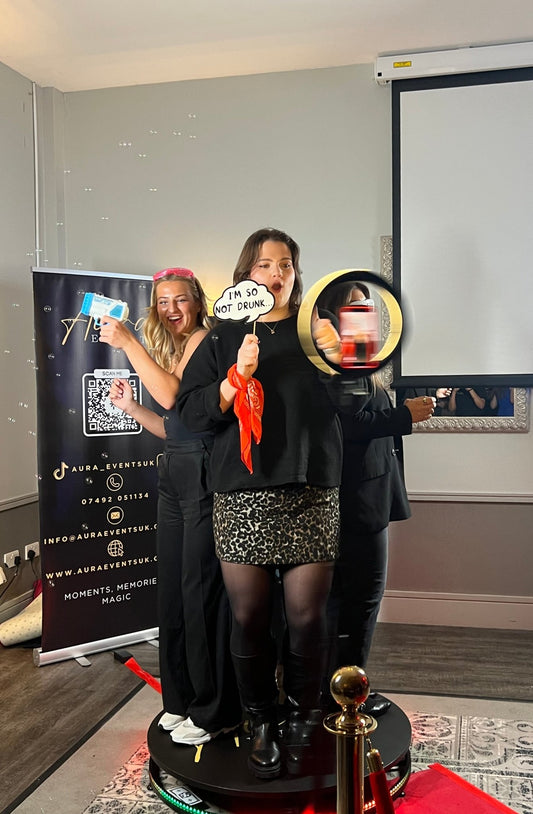The events industry has undergone a dramatic transformation over the past decade. Advances in technology have reshaped every part of event planning, design, execution, and measurement. From custom trade show booths and digital print banners to interactive displays and real-time social media integration, technology is now at the heart of every successful event. This article examines how technology is transforming the event industry with data-driven insights, real-world examples, and expert opinions. We will explore the impact of digital print, interactive displays, event management software, emerging technologies like VR and AR, and more. By the end of this guide, you will understand how technology not only enhances the attendee experience but also increases brand awareness, improves ROI, and streamlines operations.
According to Statista, the global events industry is expected to grow by 6–8% annually in the coming years, with technology playing an increasingly central role in this expansion. Research by EventMB indicates that 65% of event planners believe interactive displays and custom designs are essential to engaging potential customers. In this article, we break down the role of technology in transforming the event industry into easily understandable sections, using simple language and clear data.
“Technology is no longer an add-on; it is the foundation upon which memorable, engaging, and efficient events are built.” – Event Experts UK
1. Technology’s Impact on Event Planning
In the past, event planning involved a lot of manual work, endless paperwork, and in-person meetings. Today, technology has streamlined nearly every aspect of this process. Event planners now use digital tools to manage budgets, coordinate with vendors, and design custom displays. Software applications and cloud-based platforms help planners track everything from setup fees to vendor contracts and interactive display schedules.
Key Benefits:
- Efficiency: Digital planning tools reduce administrative overhead. For example, event management software can cut planning time by as much as 30% compared to manual methods.
- Accuracy: Data-driven tools provide real-time updates and insights, reducing errors and ensuring that every detail, from booth setups to promotional literature, is spot on.
- Collaboration: Cloud-based platforms enable team members to collaborate from anywhere, share free design templates, and update project timelines instantly.
Event planners now rely on a mix of specialized software and common productivity tools to stay organized. This shift to digital processes has made event planning more agile and responsive to changes, ultimately leading to higher client satisfaction and increased brand awareness.
2. Digital Print and Custom Designs
Digital print technology has revolutionized the way events are branded and presented. In the past, printing banners, posters, and promotional materials was expensive and time-consuming. Today, digital print offers fast turnaround times, high-quality graphics, and cost-effective production.
Advantages of Digital Print:
- Cost Efficiency: Digital print reduces setup fees and minimizes waste. PrintWeek reports that digital print usage in events has increased by 25% over the past few years, thanks to its affordability and speed.
- Flexibility: Changes to designs can be made quickly, allowing event planners to adapt to last-minute changes without significant delays.
- High Quality: Modern digital print solutions produce vibrant, detailed graphics for banners, logos, and promotional literature that reinforce the brand message.
For example, a corporate event might use digital print to create custom banners and promotional literature that reflect the company’s logo and design ideas. These high-quality visuals not only enhance the overall look of the event but also contribute to a lasting first impression on clients and potential customers.
3. Interactive Displays and Immersive Experiences
Interactive displays are one of the most engaging technologies in the modern event industry. These displays offer dynamic ways for attendees to interact with content, whether it’s through touch-screen kiosks, digital photo booths, or live social media walls.
Why Interactive Displays Matter:
- Enhanced Engagement: Studies by EventMB have shown that events using interactive displays can boost attendee engagement by up to 50%. This is because interactive elements capture attention and invite participation.
- Data Collection: Interactive kiosks can gather valuable information about visitor behavior, which helps in measuring the event’s impact and refining future strategies.
- Brand Messaging: Digital displays that incorporate a brand’s logo, graphics, and design ideas help reinforce the overall message of the event. Custom trade show booths with interactive components make a strong impression on potential customers.
A trade show exhibit might feature an interactive digital display where visitors can view new products, learn about the company’s services, and even participate in a live poll. This type of engagement not only makes the event more memorable but also provides real-time data that can be used to improve future events.
4. Social Media Integration
Social media has become a vital part of the event experience. Platforms like LinkedIn, Facebook, Twitter, and Instagram allow event organizers to promote their events, engage with attendees, and share real-time updates.
Benefits of Social Media:
- Real-Time Engagement: Live social media walls display real-time posts and updates, creating an interactive atmosphere that enhances the overall event experience. According to Social Media Today, events that integrate live social media updates see a significant increase in engagement.
- Extended Reach: Social media allows events to reach a broader audience. This can lead to increased brand awareness and attract potential customers who may not be physically present at the event.
- Feedback and Analytics: Event planners can use social media to gather feedback from attendees, monitor sentiment, and measure the success of promotional campaigns.
For example, during a product launch, a company might use a live social media wall to display customer tweets and Instagram posts. This not only boosts real-time engagement but also provides a digital record of attendee reactions, which can be analyzed to improve future events.
5. Event Management Software and Data Analytics
The backbone of modern event planning is robust event management software. These tools help planners organize every detail, from initial planning to post-event analysis.
Key Features:
- Scheduling and Task Management: Software solutions provide comprehensive scheduling tools that help track deadlines, vendor appointments, and event timelines.
- Budget Tracking: Digital tools enable precise monitoring of expenses, from venue costs to setup fees for custom trade show booths and banners. This leads to better financial management and fewer surprises.
- Data Analytics: Advanced analytics tools help measure the success of events. Metrics such as attendance rates, engagement levels, and social media reach are tracked to provide insights that inform future planning.
A survey by the Trade Show Institute found that companies using event management software report a 35% improvement in project efficiency and a significant reduction in last-minute issues. These tools empower event planners to make data-driven decisions that enhance the overall quality of the event.
6. Technology in Trade Shows and Exhibitions
Trade shows are a key area where technology has a significant impact. Custom trade show booths, high-quality digital print graphics, and interactive displays are all examples of how technology transforms these events.
How Technology Enhances Trade Shows:
- Custom Booth Designs: Innovative booth designs that incorporate digital print banners, interactive kiosks, and engaging displays create a strong first impression and boost brand awareness.
- Portable and Modular Setups: Modern technology allows for portable trade show booths that can be easily reconfigured for different events, reducing setup fees and enabling cost savings.
- Enhanced Visitor Experience: Interactive elements at trade shows make it easier for potential customers to engage with products and services, resulting in a 50% increase in visitor engagement, according to EventMB.
For instance, a company participating in a trade show in New York might use a custom-designed booth that features an interactive display to showcase new products. This not only attracts visitors but also communicates the brand message effectively, leading to a lasting impression.
7. Emerging Technologies: VR, AR, AI, and IoT
The event industry is now embracing emerging technologies that promise to further transform the way events are experienced.
Virtual Reality (VR) and Augmented Reality (AR)
- Immersive Experiences: VR and AR offer immersive experiences that allow attendees to explore virtual environments, take virtual tours, or interact with 3D models of products. A study by Event Tech Insights suggests that VR integration can increase visitor engagement by up to 40%.
- Enhanced Demonstrations: These technologies are particularly useful in product launches and exhibitions, where they can provide a dynamic way to showcase new products or services.
Artificial Intelligence (AI)
- Personalization: AI-powered chatbots and recommendation engines can offer personalized experiences to attendees. For example, AI can help suggest sessions or booths based on an attendee’s interests.
- Data Analysis: AI helps in analyzing large volumes of data from social media, event surveys, and interactive displays. This data is crucial for refining strategies and improving future events.
Internet of Things (IoT)
- Real-Time Monitoring: IoT devices can monitor energy usage, track attendee movements, and ensure that equipment such as interactive displays and digital print systems are functioning efficiently.
- Smart Venues: IoT integration in venues allows for automated adjustments in lighting, heating, and cooling, contributing to overall energy efficiency.
These emerging technologies are not just futuristic concepts—they are being actively integrated into events today, enhancing the overall experience and operational efficiency.
8. Sustainable Event Technology
Sustainability is an increasingly important aspect of event planning, and technology plays a critical role in making events more eco-friendly.
Sustainable Practices Enabled by Technology:
- Digital Print: By using digital print solutions, event planners can reduce paper waste and lower setup fees. This technology is not only cost-effective but also reduces the environmental impact associated with traditional printing methods.
- Energy-Efficient Systems: Modern venues equipped with LED lighting, smart HVAC systems, and IoT-based energy management tools can reduce energy consumption by up to 30%, according to the Energy Saving Trust.
- Virtual and Hybrid Events: Technology now makes it possible to host virtual or hybrid events that reduce travel and minimize carbon emissions. This is a growing trend, particularly in the wake of global events that have highlighted the need for sustainable practices.
These sustainable practices not only benefit the environment but also resonate with an increasingly eco-conscious audience, enhancing the overall brand message and public perception.
9. The Role of Technology in Enhancing Customer Experience
Ultimately, the success of any event hinges on the experience of its attendees. Technology is a key driver in creating engaging and memorable experiences that leave a lasting impression.
Enhancing the Attendee Journey:
- Interactive Engagement: Tools like interactive displays, digital photo booths, and touch-screen kiosks encourage active participation. Data shows that interactive elements can boost overall attendee satisfaction by 35–40%.
- Seamless Communication: Event management software and mobile apps keep attendees informed with real-time updates, session schedules, and interactive maps, ensuring a smooth experience from start to finish.
- Personalized Experiences: By leveraging data analytics and AI, event planners can tailor experiences to meet the preferences of individual attendees. Personalized recommendations and targeted content can significantly enhance the perceived value of the event.
- Feedback Collection: Digital surveys and real-time social media feedback allow planners to collect insights during and after the event, which can be used to measure success and identify areas for improvement.
These elements contribute to a cohesive and satisfying experience that not only meets but exceeds the expectations of both customers and clients.
10. Future Trends and Expert Opinions
Event experts predict that technology will continue to play an even larger role in the event industry. Here are a few trends and expert opinions to consider:
- Increased Use of AI and Machine Learning: Experts believe that AI will drive further personalization and predictive analytics, enabling planners to anticipate attendee needs and streamline operations.
- Expansion of Virtual and Hybrid Events: With the success of virtual platforms during recent global events, many companies are now adopting hybrid models that combine in-person and virtual experiences. This trend is expected to grow, offering greater flexibility and broader reach.
- Smart Venues: The integration of IoT and smart building technologies in venues will allow for more efficient energy management and enhanced attendee comfort.
- Greater Focus on Sustainability: As consumer demand for eco-friendly practices grows, more events will adopt green technologies such as digital print, renewable energy sources, and waste reduction systems.
- Enhanced Data Analytics: With the increasing availability of data, event planners will use sophisticated analytics tools to measure everything from engagement rates to ROI, allowing for continuous improvement.
Event Experts UK states, “Technology is the backbone of modern event planning. It not only simplifies logistics but also creates immersive, engaging experiences that drive brand loyalty.” This sentiment is echoed across the industry and is supported by data from various sources.
11. Conclusion
The role of technology in transforming the event industry is both profound and far-reaching. From the initial planning stages to the execution of custom trade show booths, interactive displays, and digital print banners, technology has become indispensable. It streamlines operations, enhances attendee engagement, and improves overall efficiency, all while supporting sustainability and reducing costs.
Key takeaways include:
- Digital Transformation: Technology has modernized every aspect of event planning, making it more efficient and data-driven.
- Enhanced Engagement: Interactive displays, social media integration, and immersive technologies such as VR and AR significantly boost engagement.
- Operational Efficiency: Event management software and digital tools help reduce planning time, manage budgets effectively, and improve overall project coordination.
- Sustainable Practices: Technologies such as digital print and energy-efficient systems contribute to environmentally friendly event practices.
- Future Trends: Emerging technologies and data analytics will continue to drive innovation in the event industry, ensuring that events are more personalized, sustainable, and effective.
Data and industry research consistently show that the integration of technology leads to higher attendee satisfaction, increased brand awareness, and improved ROI. As the event industry continues to evolve, staying ahead of technological trends will be crucial for event planners and companies alike.
Whether you are planning a trade show exhibit, a corporate event, or a large-scale conference, embracing technology will help you deliver memorable experiences that leave a lasting impression on clients, customers, and colleagues. By leveraging digital print, interactive displays, smart software, and emerging technologies, the events of tomorrow will not only be more engaging but also more sustainable and efficient.
Start exploring new tools and techniques today, and join the growing number of event professionals who are harnessing the power of technology to transform the industry.


